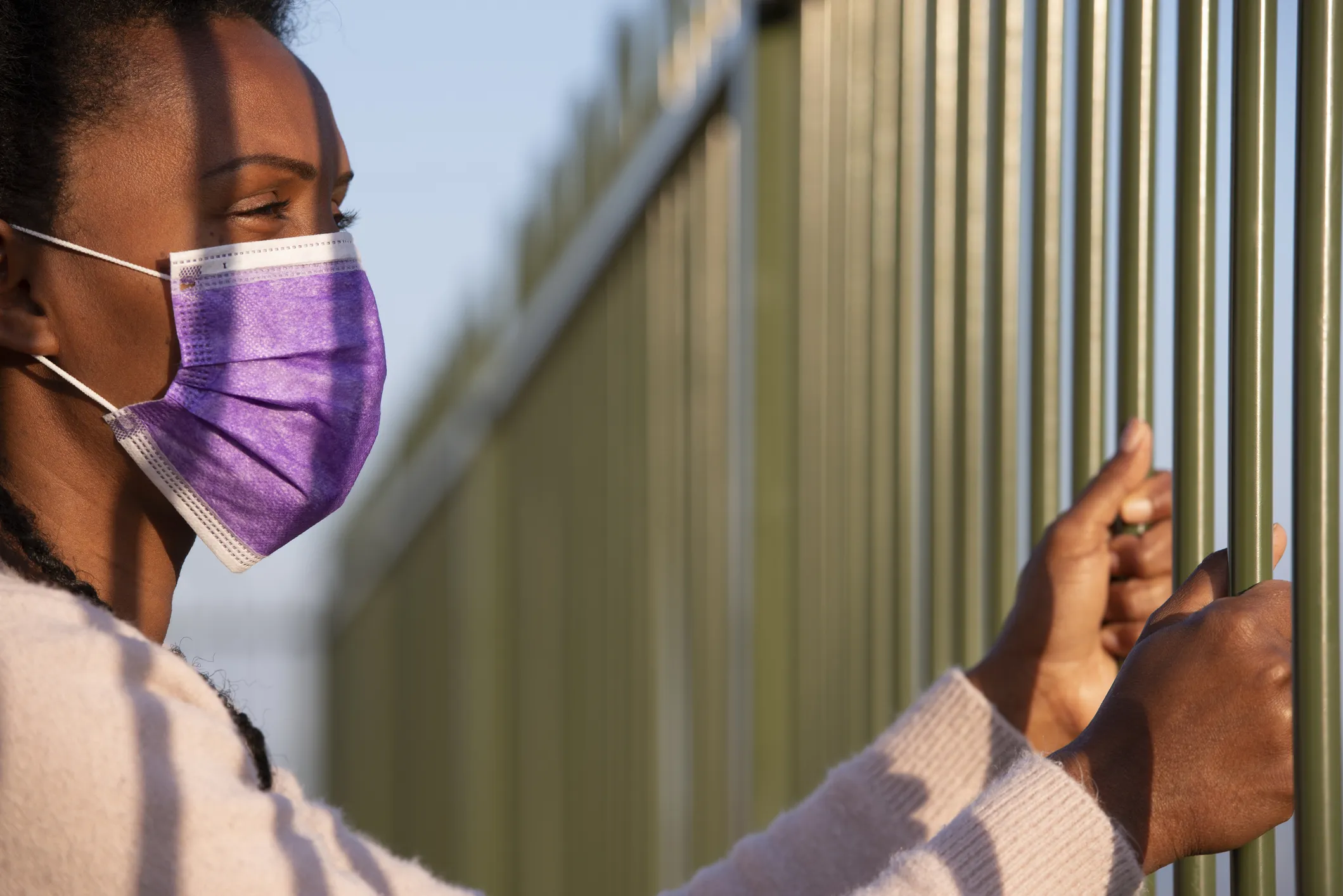
As we reach the end of a year that has been characterised by unprecedented global disruption as a result of the COVID-19 pandemic that continues to rage, it has become clear to everyone that this is not just a health crisis, but that it has implications for every aspect of local, national and global governance. In my role as Special Adviser to the United Nations Secretary-General on the Responsibility to Protect, I am deeply concerned about the potential impact of the pandemic on the risk of atrocity crimes, and particularly on the most vulnerable and marginalised populations—those who are already most at risk. This includes racial, ethnic and religious minorities, indigenous peoples, migrants, refugees and internally displaced people, women, children and the elderly, amongst others. The United Nations policy brief
Covid-19 and Human Rights: we are all in this together emphasises that “the vulnerable in our societies are not only at greater risk from the virus itself, they are also most severely affected by the negative impacts of measures to control it,” (p.7) and that, “The virus does not discriminate; but its impacts do.” (p.10) In managing the crisis and our responses to it, this is important to keep in mind.
Fifteen years ago, all United Nations member states unanimously agreed to protect their populations from the most heinous crimes, namely genocide, war crimes, ethnic cleansing and crimes against humanity. In states where underlying risks, including conflict, weak state structures, high levels of socio-economic inequality, political instability, a history of human rights violations or atrocity crimes are already present, a crisis such as the one we are currently facing can further increase the risk of such crimes.
In the development of national and global responses to the crisis, it is therefore essential that any action takes into consideration the potential implications for the risk of atrocity crimes. This relates to both structural risk factors, but in some cases, also an increase in imminent risk factors. Some of the lessons being learned in dealing with the COVID-19 outbreak are also relevant for atrocity prevention. These include the obvious, but consistently under-prioritised truth that prevention is better than cure. Similarly, the importance of early warning – whether with reference to conflict, pandemics, or atrocity crimes, is being underlined. Having learned from past experiences, we know that atrocity crimes do not occur without warning, and we now know the warning signs. The United Nations Office on Genocide Prevention and the Responsibility to Protect has developed a
Framework of Analysis for Atrocity Crimes that helps to systematise the risks of such crimes. We know, for example, that human rights violations are precursors to atrocity crimes. We know that a rise in hate speech and incitement to discrimination, hostility and violence targeting particular groups is not only a sign of increased intolerance and hatred, but that it should also be taken as a serious warning of the potential for the commission of atrocity crimes.
Some of the lessons being learned in dealing with the COVID-19 outbreak are also relevant for atrocity prevention. These include the obvious, but consistently under-prioritised truth that prevention is better than cure.
In recent months, in many countries, we have seen an increase in xenophobia as well as minority groups being targeted as scapegoats for the pandemic and being accused of spreading the virus. The
United Nations Guidance Note on COVID-19 Hate Speech developed by my Office stresses that political leaders and people with influence on societies are using the pandemic to target already marginalised and discriminated against populations, including ethnic and religious minorities. COVID-19 related hate speech exacerbates existing discrimination, social and economic inequalities, drivers of violence and violent extremism, social cohesion and solidarity that are needed to fight the pandemic. It can have short and long-term repercussions, such as exclusion, marginalisation, human rights violations, violence and atrocity crimes. It is therefore a threat to the values and principles of the United Nations and its efforts to combat the virus and “build back better”.
When governments do not address these warning signs, they are failing in their primary responsibility to protect. Of equal concern are the responses of some governments to the pandemic. While human rights law recognises that emergencies may require temporary limits to be placed on the exercise of certain human rights, we need to hold governments accountable so that they do not use the crisis as a pretext to adopt repressive measures for purposes unrelated to the pandemic. Some governments have used the crisis to tighten restrictions on their populations, including through surveillance and militarised responses, and through censorship and the silencing of criticism, including clamping down on human rights defenders. In addition, the closing of borders has meant that thousands of refugees, migrants and other displaced peoples, in need of protection and assistance, face a precarious situation where they are unable to flee from conflict or persecution, or find themselves in legal limbo in refugee camps.
When governments do not address these warning signs, they are failing in their primary responsibility to protect. Of equal concern are the responses of some governments to the pandemic. While human rights law recognises that emergencies may require temporary limits to be placed on the exercise of certain human rights, we need to hold governments accountable so that they do not use the crisis as a pretext to adopt repressive measures for purposes unrelated to the pandemic
While the responsibility to protect also commits states to assist their peers in carrying out their obligations, the pandemic has resulted in governments around the world being increasingly inward-looking. This tendency to, understandably, focus first and foremost on their domestic situations is coupled with both a lack of capacity and willingness to assist other states in building resilience against atrocity crimes, as well as to respond to atrocity crimes that are imminent or occurring, with potentially disastrous consequences for those most in need of protection.
Prevention of atrocity crimes is at the heart of the responsibility to protect. We know that societies that respect human rights and the rule of law, that are tolerant and celebrate diversity, and where there are high levels of economic equality, are more resilient when it comes not only to the potential for conflict but also for atrocity crimes. We all – as members of governments, international organisations, civil society, and as individuals—have a role to play in ensuring that in dealing with the immediate effects of the COVID-19 crisis, our societies do not neglect other priorities, and that any responses are informed by a human rights approach that ensures equal treatment of all people.
In conclusion, while governments around the world are now, understandably, focused on addressing the pandemic, they should be reminded that they are not only responsible for protecting the health of their populations, but also for protecting them, and those of other states, when necessary, against atrocity crimes. To achieve this, both the immediate response and longer-term recovery efforts should address specific risks and include measures for vulnerable and marginalised populations to ensure that no one is left behind. In a year in which we mark the 75
th anniversary of the United Nations, collective action and global solidarity must be what we strive for.
The views expressed above belong to the author(s). ORF research and analyses now available on Telegram! Click here to access our curated content — blogs, longforms and interviews.



 As we reach the end of a year that has been characterised by unprecedented global disruption as a result of the COVID-19 pandemic that continues to rage, it has become clear to everyone that this is not just a health crisis, but that it has implications for every aspect of local, national and global governance. In my role as Special Adviser to the United Nations Secretary-General on the Responsibility to Protect, I am deeply concerned about the potential impact of the pandemic on the risk of atrocity crimes, and particularly on the most vulnerable and marginalised populations—those who are already most at risk. This includes racial, ethnic and religious minorities, indigenous peoples, migrants, refugees and internally displaced people, women, children and the elderly, amongst others. The United Nations policy brief
As we reach the end of a year that has been characterised by unprecedented global disruption as a result of the COVID-19 pandemic that continues to rage, it has become clear to everyone that this is not just a health crisis, but that it has implications for every aspect of local, national and global governance. In my role as Special Adviser to the United Nations Secretary-General on the Responsibility to Protect, I am deeply concerned about the potential impact of the pandemic on the risk of atrocity crimes, and particularly on the most vulnerable and marginalised populations—those who are already most at risk. This includes racial, ethnic and religious minorities, indigenous peoples, migrants, refugees and internally displaced people, women, children and the elderly, amongst others. The United Nations policy brief  PREV
PREV


